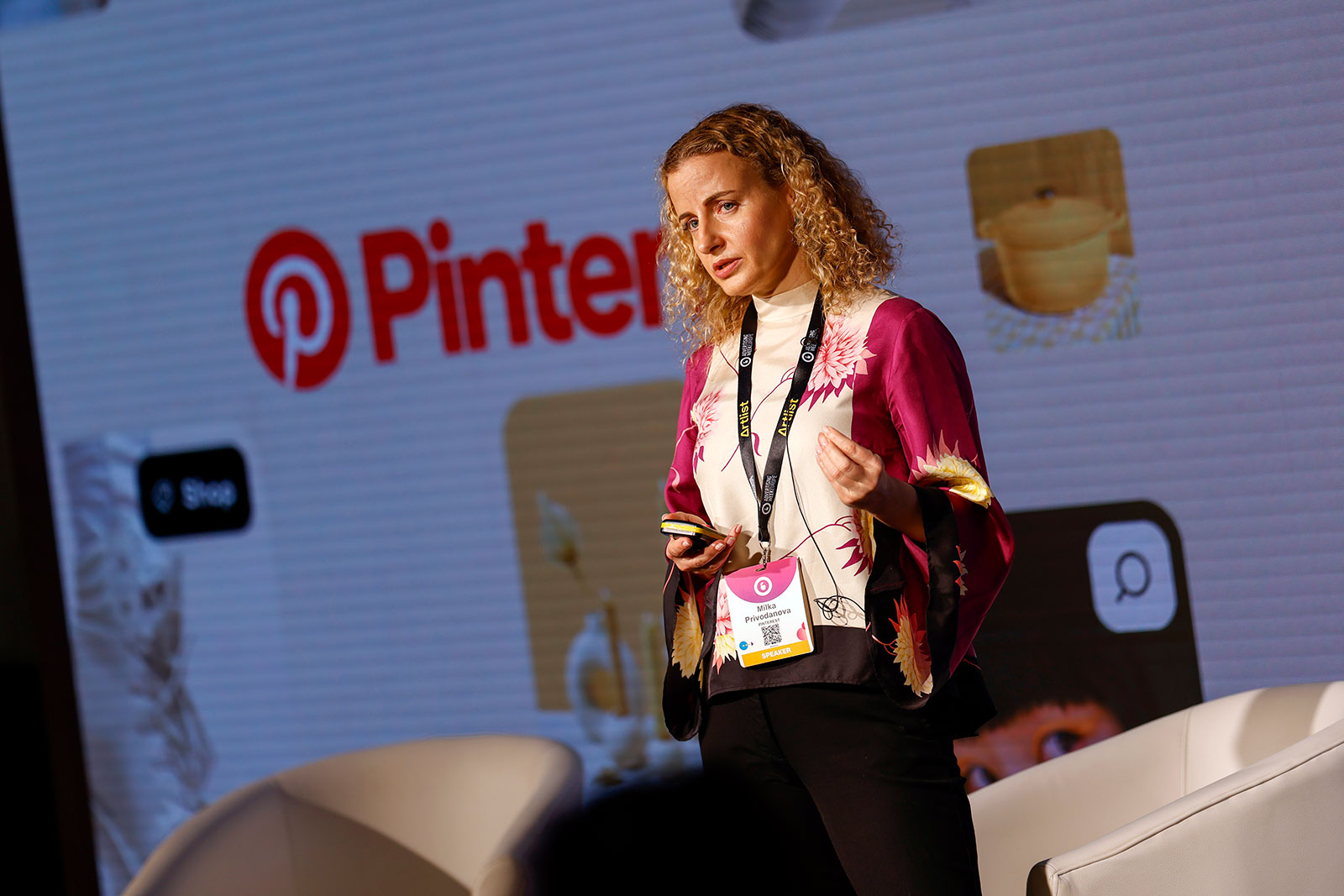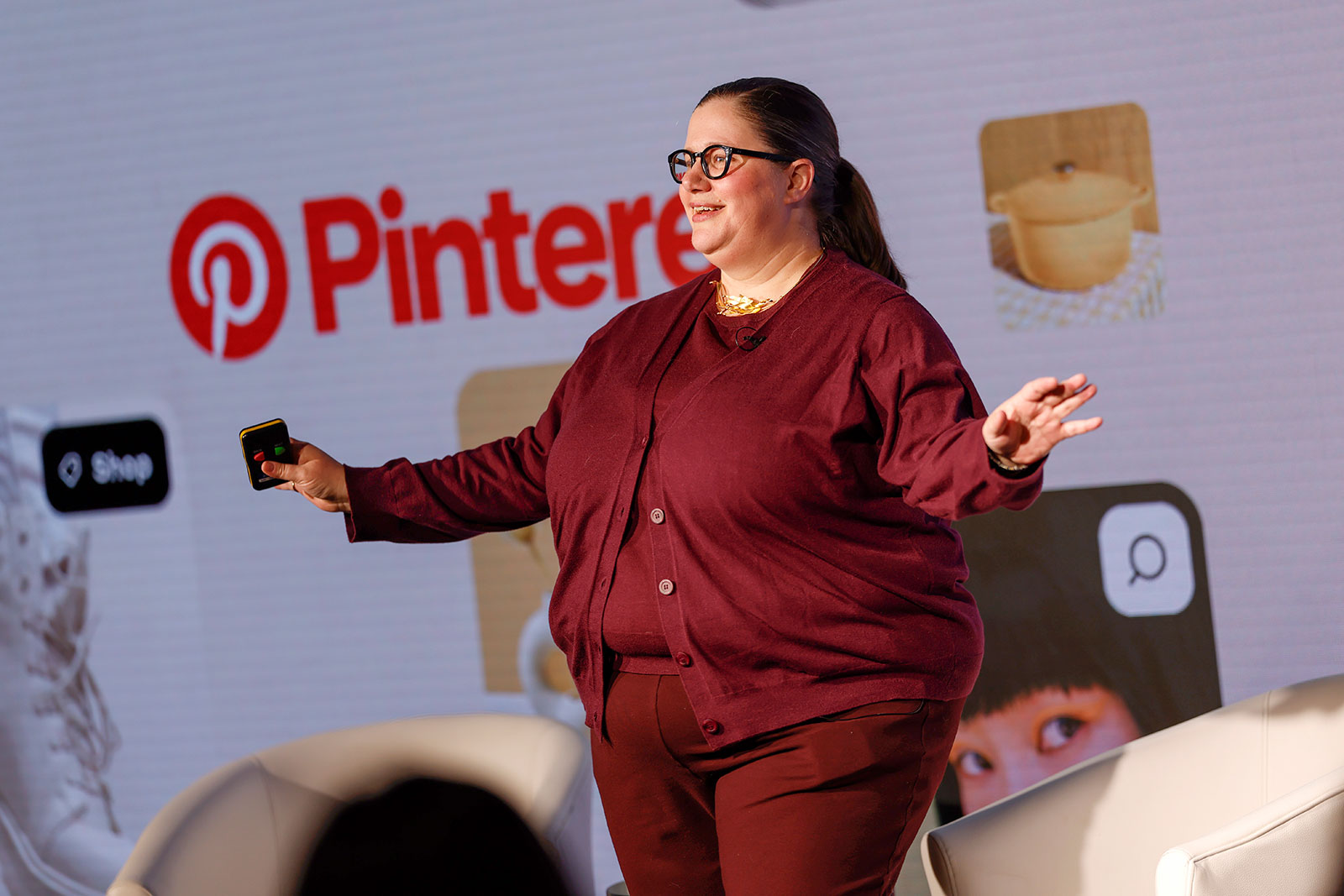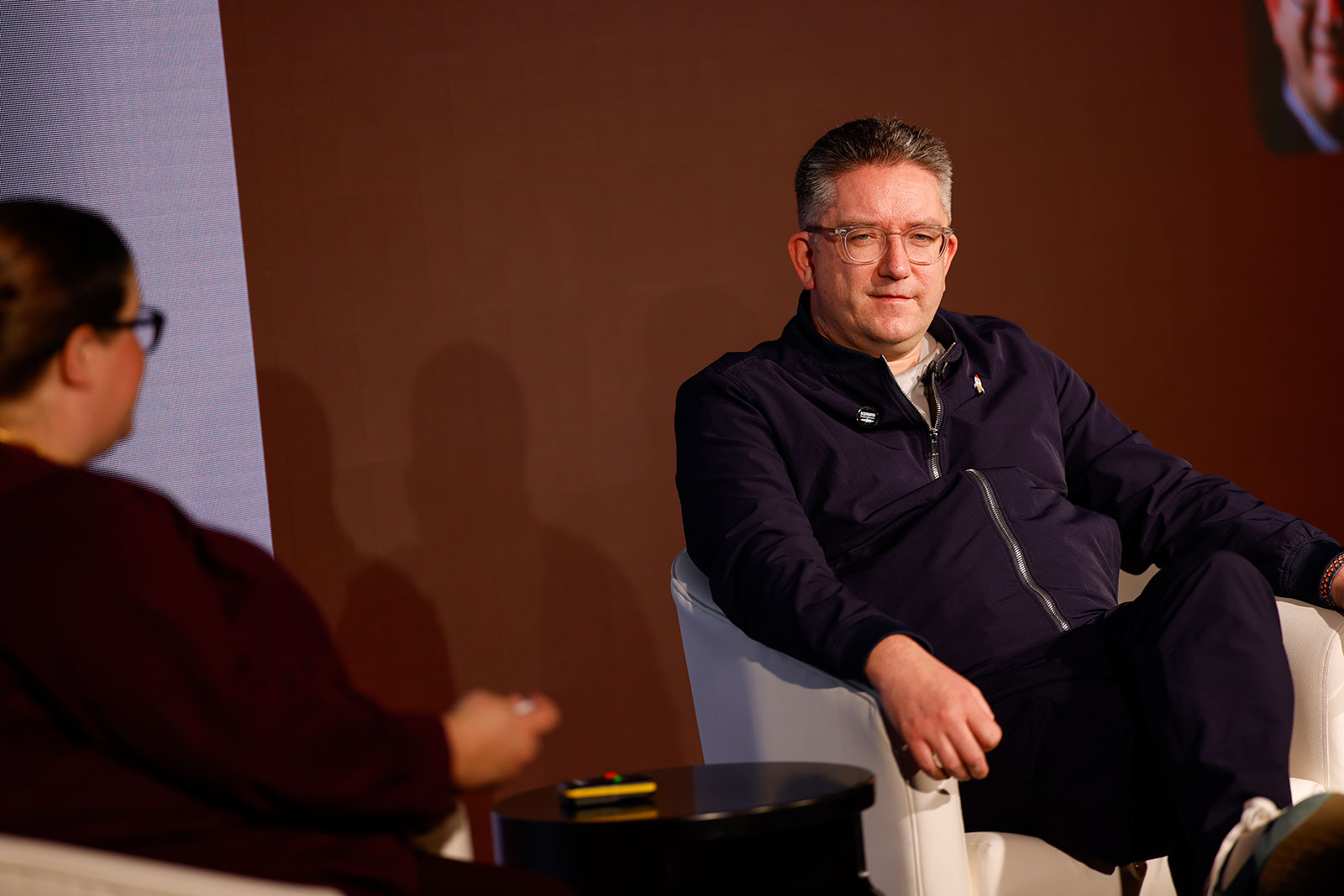By Helen Myers, Advertising Week Correspondent
“People come to Pinterest to be inspired, they are coming to be away from the toxicity that finds them elsewhere, they come to find the online oasis.” – Milka Privodanova, VP Head of Europe, Pinterest.
Pinterest kicked off the first session of Advertising Week Europe with a sit-down breakfast.
The event began with Pinterest VP Head of Europe Milka Privodanova, who introduced the current standing of Pinterest. Privodanova indicated that while other brands focus on solving for speed and price when it comes to shopping, Pinterest is focusing on joy and making the experience more seamless.
 With Q4 2024 being their first billion-dollar quarter, as highlighted in their previous earnings, Pinterest has reached a new era. Their success is based on the lower-funnel performance products they launched over the last few years, which drives their users from inspiration to actually making a purchase.
With Q4 2024 being their first billion-dollar quarter, as highlighted in their previous earnings, Pinterest has reached a new era. Their success is based on the lower-funnel performance products they launched over the last few years, which drives their users from inspiration to actually making a purchase.
Privodanova mentions that another factor in their success has been the launch of Performance+, their AI-backed campaign features that make advertising more powerful. She explained that Pinterest is a positive platform and that is the pillar of how they train their AI.
Next, the Managing Director of Pinterest UK, Beth Horn, took the stage to present the company’s new research with media intelligence firm MAGNA, which found that positivity can drive better performance. “We really believe that there is value in building a positive platform for people because we believe that it is good for business too,” she explained.
 Despite the positivity movement on Pinterest, the internet is still a scary place. Brands can simply turn on their brand safety tools and run their advertisements in those safe spaces. The problem is that consumers aren’t fully protected from the negativity and may view negative content before and after the advertisement, which could dampen the overall experience with the ad.
Despite the positivity movement on Pinterest, the internet is still a scary place. Brands can simply turn on their brand safety tools and run their advertisements in those safe spaces. The problem is that consumers aren’t fully protected from the negativity and may view negative content before and after the advertisement, which could dampen the overall experience with the ad.
“Based on this new research that we rolled out with the media intelligence firm MAGNA, we’ve really looked to prove that having a positive experience can have an impact on your bottom line,” she explained.
The research done with MAGNA sought to discover whether it matters if someone has a positive experience on a platform when viewing an advertisement.
“The findings show that ads served in positively perceived environments provide three key benefits: they work harder, they drive action, and they boost sales,” she said. Horn backed these claims with research and stated, “[MAGNA] found that with the same creative and the same budget, Brands can generate up to 24% more sales by incorporating positivity into their media buying strategies.”
To further drive this point, she added that advertisements seen on a positive platform are twice as interesting and trustworthy. This results in action as advertisements on positively viewed platforms are 94% more impactful in driving purchase intent.
Horn encourages brands to integrate positivity signals, iterate on MMM, and invest in platforms that prioritize positivity. She stresses that positivity and performance go hand in hand, and the research done by MAGNA backs these claims.
 The session ended with a Q&A with Dan Finley, CEO of the Debenhams Group, to continue the conversation on positivity in business. Finley offered insight on the prior research presented by Horn and how that connects to his business practices, offering “Everybody is chasing a better ROI and if you can advertise on a platform where you know the user has a positive intent and your brand is showing in a positive space, and it performs, why would you advertise elsewhere?”
The session ended with a Q&A with Dan Finley, CEO of the Debenhams Group, to continue the conversation on positivity in business. Finley offered insight on the prior research presented by Horn and how that connects to his business practices, offering “Everybody is chasing a better ROI and if you can advertise on a platform where you know the user has a positive intent and your brand is showing in a positive space, and it performs, why would you advertise elsewhere?”










